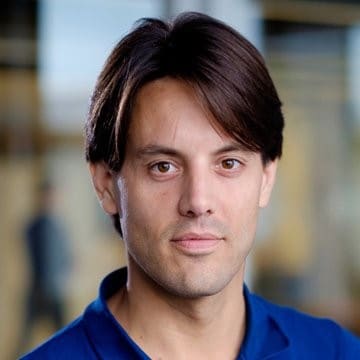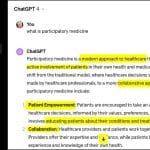When Regina Bertlich was diagnosed with metastatic pancreatic cancer, her doctor referred her to palliative care and never told her that clinical trials could be an option.
Regina’s daughter, Ines Bertlich, MD, decided to do her own research. Ines and her father and brother—who are also physicians—decided to look for clinical trials before accepting palliative care. While searching online, Ines found myTomorrows, a platform that helps patients and physicians find and access clinical trials and expanded access programs.
Based on Regina’s medical records, myTomorrows conducted a global search of clinical trial registries and provided a listing of all possible options for Ines to share with her mom’s oncologist. The family soon learned that the clinical trial they wanted to apply for was closing soon and no longer accepting patients. However, they requested access to the drug through an expanded access program, sometimes called compassionate use.
Regina, 62, started taking the drug through the expanded access program in October 2020 under supervision of her oncologist. More than a year later, she is pain-free and feeling well enough to do yoga.
As physicians, it’s time to recognize this privilege we have when it comes to helping our own families, and to support our patients by responsibly providing information about clinical trials when appropriate. The experience of working with the Bertlich family also reminded me how patients—even one from a family of physicians—face many barriers when it comes to finding and accessing a clinical trial.
Regina’s story probably would have been different if she had not been married to a physician and had children who are physicians. Her experience highlights the inequity of information that often exists for patients when it comes to finding and accessing a clinical trial. Regina’s outcome is uncommon, as most patients with cancer don’t seek clinical trials. For example, it is estimated that only about 8% of adult cancer patients in the United States participate in clinical trials.
A study by the Fred Hutchinson Cancer Research Center published in the Journal of the National Cancer Institute in 2019 found that almost a quarter of cancer patients do not participate in clinical trials, not because of eligibility criteria that determine which patients can enroll, but because of patient or physician-related barriers, such as not being asked to participate.
However, when offered a clinical trial, more than half of all cancer patients do participate.
This reality is why Ronald Brus, MD, founded myTomorrows after losing his father to an aggressive form of lung cancer. As a physician and founder of several successful biotech companies, he thought he could help his father access a drug in development, but he was surprised at how complicated and slow the process was. The drug he tried to access, Keytruda, eventually became the first-line treatment for his father’s type of lung cancer. In 2017 I joined myTomorrows and am now CEO.
We have helped thousands of patients around the world, and we have heard from many that their physicians never mentioned clinical trials or asked if they were interested in learning about clinical trials.
As a physician who previously worked at the Netherlands Cancer Institute, I understand the extreme time constraints that treating physicians often face. Providing patients with patient navigators, sometimes called clinical trial navigators, can help reduce the burden on physicians. Some initial studies have shown that navigators can improve participation rates in clinical trials, and that navigators can help reduce disparities in minority participation in clinical trials.
Shared decision making is at the core of our mission to enable earlier, better access to all possible treatment options. This begins with providing unbiased information about all possible clinical trials and expanded access programs for a specific patient.
We always share this information responsibly in a document called a Treatment Search Report. Our team of Patient Navigators, who speak eight languages, are trained to explain complex information in a patient-friendly way. They explain how a clinical trial or expanded access program works and explain the possible risks and benefits of accessing a drug in development. Before providing the Treatment Search Report, we make it clear to patients that this is something they must discuss with their physician.
Our approach supports teambuilding by bringing together patients, caregivers, and physicians.
Patients are empowered to play a more active role in their care by having a Treatment Search Report with detailed medical information to discuss with their physicians. In turn, this provides a new opportunity for physicians to recognize patients as partners and collaborators in their care and engage in shared decision making as they review these possible treatment options together in the report.
By making it easier for patients and physicians to find and access clinical trials, we aim to reduce barriers to clinical trial participation. We hope more physicians will join us in this mission.
Michel van Harten earned his BSc in Economics and Medical Degree at the University of Amsterdam. He joined myTomorrows as Medical Director in 2017 and was named CEO in 2021.
Did you enjoy this post? Sign the Manifesto and learn more about becoming a member.







Nice, Michel. Thanks
Michel, thanks for sharing this story and your mission with us.